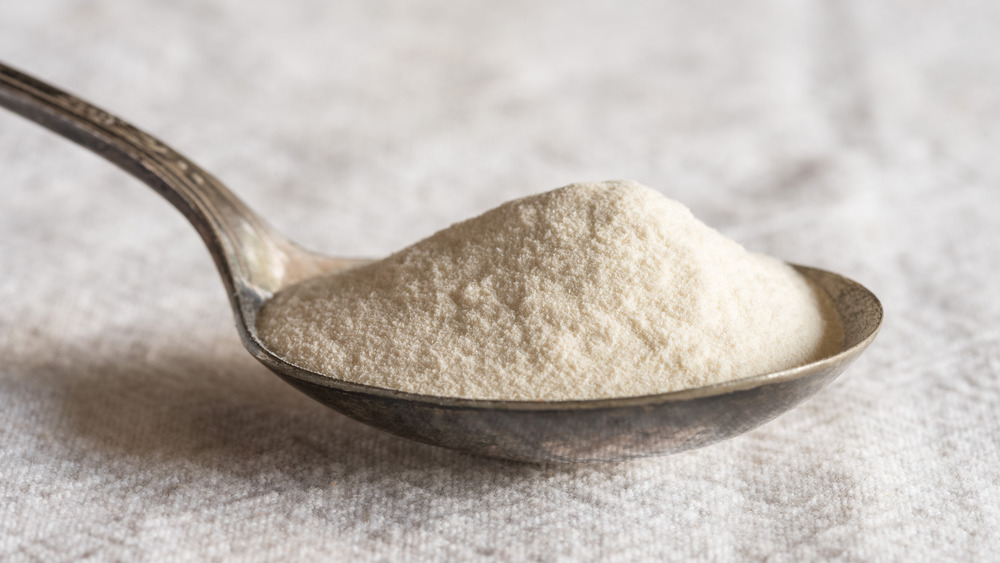What Is Xanthan Gum?
When you think about xanthan gum, if you think about it at all, you most likely associate it with gluten-free baked goods. Many of us know someone who is on a gluten-free diet, and xanthan gum features pretty prominently on the list of unusual ingredients that suddenly become important when foraging into the brave new world of gluten-free baking.
But what is it? Xanthan gum is a food additive which is made by taking glucose and fermenting it using a bacteria called Xanthomonas campestris (via Healthline). The fermentation process produces a gooey substance which is then solidified, dried, and crumbled into an off-white powder. This powder is what you can easily find in the gluten-free baking section of most grocery stores.
Xanthan gum is used mainly as a thickener and a stabilizer. Especially in gluten-free foods, which naturally lack gluten's stretchy, sticky qualities, xanthan gum is used to make the texture of gluten free baked goods mimic that of their wheat alternatives by making the texture more soft and spongy, and less crumbly.
Xanthan gum is found in some cosmetics, too
Uses for xanthan gum go way beyond gluten-free baking. In fact, it's likely that you've consumed some xanthan gum already today without even knowing it. It's used in a variety of other food products like salad dressings, soups, juices, syrups, and low-fat foods.
Because xanthan gum binds moisture, it helps to keep liquids from separating and makes it possible for beauty products like shampoo or lotion, and industrial products like paints and household cleaners, to flow smoothly (via Verywell FIt). It's also used in some medicines.
Several studies have found that xanthan gum, in large amounts, can help lower blood sugar. It's also a soluble fiber which is indigestible and adds no nutrients or calories to the diet, but which also means it can have a laxative effect. Even though in large amounts, xanthan gum has been linked to digestive problems, in the small amounts that most people, even with a gluten-free diet, consume, it appears to be harmless at worst, or even beneficial.


